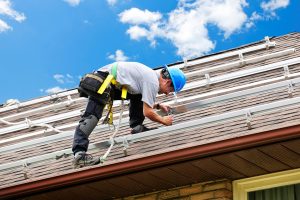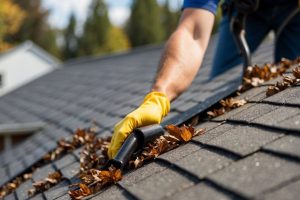
There are three varying types of commercial roofing in which Dallas commercial roofing contractors can install or retrofit an already existing roof. These include flat roofs, low-sloped roofs, and pitched roofs. Of the three, flat roofs are most commonly used. Low-sloped roofs are installed on an apartment building, factories, industrial buildings and warehouses. Pitched roofs, on the other hand, are installed on residential homes more than commercial buildings. Pitched roofs can be used alongside flat or low-sloped rooftops. These three types of rooftops favor various kinds of materials to use in their installation. Certain kinds of roofs can even combine two or three kinds of materials depending on the type of building, geographical location weather or other additional factors.
Flat commercial rooftops are significantly cost-effective to build than pitched or steep slope roofs. Because they require less roofing materials due to little square footage covered and are quick and easy to install. Moreover, its repair is easy and cheap. The roofing contractors have a variety of roofing material types to choose from ranging from bitumen, built-up roofing, EPDM, modified bitumen, PVC and TPO. From these choices, clients choose white membranes because the reflection of sun rays add a cooling effect to the building. Instead of installing air conditioners on the ground, they can be installed on roofs. Another advantage comes in maintenance and drainage are made easy where the workers walk easy and are safe. The disadvantages of having a flat roof come in drainage being poor. Standing water degrades the roofing material sooner than anticipated. Therefore, Dallas commercial roofing contractors are the best bet for they place drains at appropriate heights to avoid water puddling.
Commercial low-slope roofs allow water run-off, unlike flat rooftops. These roofs are designed to channel water to valleys, saddles, or drains avoiding water damage. When compared to high-pitched roofs, the square footage uses less roofing material. These low-slope roofs provide easier and safer working conditions for roofers in comparison to high-pitched roofs. Its installation is easier and provides sound conditions for roofers. Low-slope roofs keep water problems to bare minimum making calling the repairman is negligible.
The same roofing materials used in flat commercial rooftops are used. There is an added advantage in using modified bitumen material because it has an added thickness and superior sealing capabilities increasing its warranty length. The demerits of using this roofing comes in snowing weather conditions which add weight and it could be a hazard. Building codes need to be adhered to.
For commercially pitched rooftops, the increased slope provides prodigious water runoff and snow measured side by side to both low-slope and flat commercial rooftops. This roofing type barely gets mold or water damage because water and debris roll off easily. Calls to the repairman are abridged in assessment to other rooftops. Unfortunately, Dallas commercial roofing contractors find it cumbersome doing maintenance and repairs. Increased safety is considered in working on this surface unlike the other two types of roofs. Transfer of working and roofing materials are stressful which increases the cost of each installation, maintenance and repair services. The best roofing material to use here is metal retrofit roofing. It is cost-effective and all roofs with a slope above four inches work well. The client does not need to remove the old roof allowing work to continue below it. More so, employees and inventory are protected as the work goes on. However, this process could be more expensive, in the long-run it’s inexpensive and provides increased insulation from the elements. These retrofits keep energy costs to a bare minimum.

